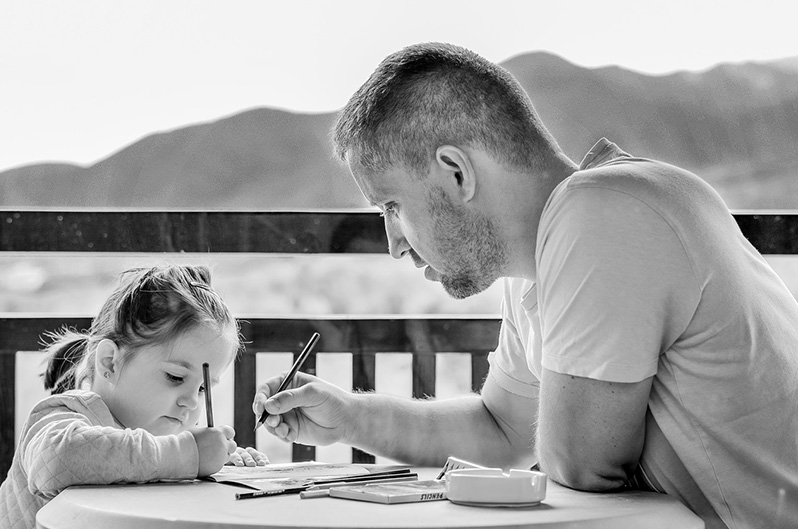"The perfect education"? Trends over the course of time
They keep popping up: The perfect guide to raising children. But which is the right one? Is there a healthy average between "just let your child be a child" to "no out of love"?
More and more parents are asking themselves these legitimate questions in a boom in parenting styles. Most of the time, they are concerned with "doing everything right" and giving their children the most important things on the way. Mainly so that they later have the chance to make the best of themselves and their life.
Because children expect great challenges in the performance society in adulthood, which is why parents want to strengthen them in particular.

According to sociologist Prof. Paula-Irene Villa, upbringing in society is increasingly seen as an investment that should optimize future high performers, i.e. children. This raises the question of how parents and teachers can achieve a "good upbringing".
We at the Natureich editorial team make it our task to find answers from teachers, scientists and parents and also give children a say. How much freedom can a child have? And to what extent are rules and regulations needed?
How many limits should there be? Parenting styles through the ages
In the last ten years a trend towards traditional virtues can be seen, which establishes a "good upbringing". These are qualities like respect and obedience, which are also taught in some books. Well-known titles in the education industry include, for example: "Children need limits". The American-Chinese law professor Amy Chua wrote the popular bestseller "The Mother of Success". The title alone suggests that discipline is the top priority in a successful upbringing.

It can thus be clearly seen that different educational methods have developed over the past decade. For this reason, many parents tend to be unsure which approach is best suited for their children: On the one hand, one advises intensive support at an early age (foreign languages in kindergarten, early musical education or mother-child swimming), on the other hand, one relies on passing it on important values such as performance and discipline. The result is a paradoxical development brought about by a family study by the Institute for Demoskopie in Allensbach: Although society perceives child-rearing to be inadequate, parents are at the same time more satisfied with their parenting obligations than before.
Educational researchers are also divided: Childhood researcher Donata Elschenbroich from Munich is pleading not only for a school reform but also for parents to be motivated to awaken the natural ambition of the next generation. The Freiburg professor Joachim Bauer, who attaches great importance to affection and empathy, has a different opinion. This creates education without pressure to perform.
Ultimately, we shouldn't be confused by the jungle of "right" and "wrong" parenting guides. Which upbringing can boast with the title "perfect"? It is valuable to get inspiration and to stay informed at all times, but your own intuition and individual experiences flow into every upbringing. So trust in your feelings and the loving thought of giving your child the best possible on the way!







Leave a comment